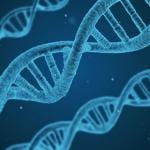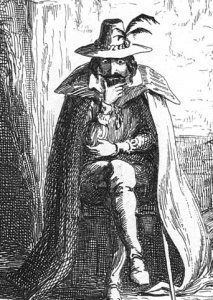Right then, back to your regularly scheduled program of subverting Catholicism. Archbishop Chaput’s second point of critique of Fr Martin is this:
Father Martin has, in the past, suggested that people are born “gay.” … Studies have recently shown that there is no “gay gene,” and homosexuality is the product of a variety of factors. It’s true that many persons with same-sex attraction have experienced it for as long as they can remember, but no firm scientific consensus exists on the cause. Moreover, genetic dispositions … say nothing about the benefit or harm toward which they dispose those having them. Any implication that a person’s behavior is predetermined, and that intellect and free will have little role in the formation and control of his or her sexual appetites, is both false and destructive, especially to young people.
Hoo boy. This is going to take some unraveling.

First of all, the idea that people are born gay is in no way the same thing as the assertion that there is a gay gene. The expression “born gay” is, admittedly, a rather simplistic way of putting things in the first place, but what it expresses is the idea that being gay is neither chosen by gay people, nor caused by upbringing, experimentation, or trauma: it’s just the way some people are. And that idea is a great deal broader than genetics. It’s technically true that biology seems confident that there is no gay gene, but that does not remotely discredit the idea behind the expression “born gay.”
Speaking of genes, there is actually some evidence that homosexuality has epigenetic causes: that is, that environmental factors that affect how genes are expressed might cause, or contribute to, homosexuality. But when we say “environmental factors” here, it’s denoting things like the internal chemistry of the mother’s uterus and its influence on fetal development—not whether dad played softball with the boy enough or whether bullies on the playground called him slurs.
This leaves us with the possibilities that Archbishop Chaput either didn’t know that, or didn’t feel it merited mention. I’m inclined to take issue with either: both indicate ignorance or incuriosity or even carelessness about LGBT issues. Which would be one thing if they were the feelings of a private person, but it’s frankly irresponsible for an archbishop who is writing on that exact subject. Knowing what you’re talking about when you speak with sacred authority is not an optional extra—it’s a duty to honesty.

His Excellency’s remarks on intellect and free will are again disquieting. Now, probably no reasonable person, and certainly no educated Catholic, would deny that intellect and free will have an influence on what we do with our sexual impulses; and nobody, or at least nobody worth listening to, is saying that sexuality is such a powerful force that it overrides all thought and choice. It’s the decision to say “formation and control,” rather than just “control,” that comes off unsettlingly. Is the good bishop saying that we can decide not to be gay? Or that we can cure it with arduous effort if it’s caught early enough? Because, uh … no. We extremely can’t. If nothing else had, the implosion of Exodus International in 2013, after a forty-year career of trying to change people’s sexual orientation, should have taught everybody that. People have committed suicide over their inability to change their orientation. This is not something to imply lightly.
And the idea that we can become straight if we just try hard enough isn’t just poisonous: it’s also a staple of the way Christians of all denominations have treated queer people in this country for the last fifty years. LGBT people still get ejected from ministries, schools, jobs, churches, and even our own families for not being able to change our orientation. Again, this is something Archbishop Chaput should know already, partly as a function of his office as a shepherd and partly because he chose to write about this subject.
Images via Pixabay












